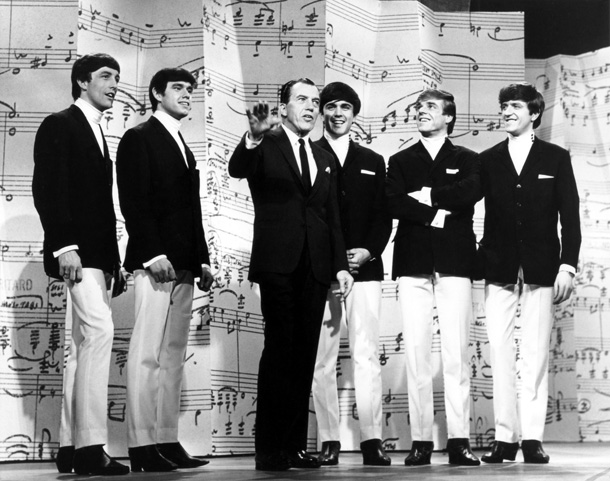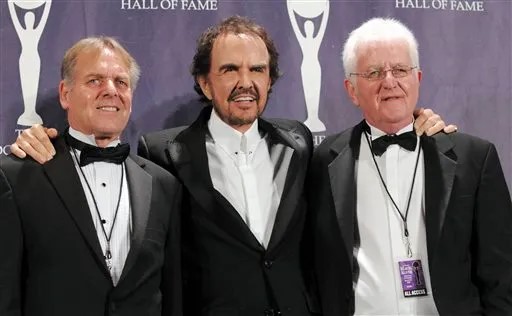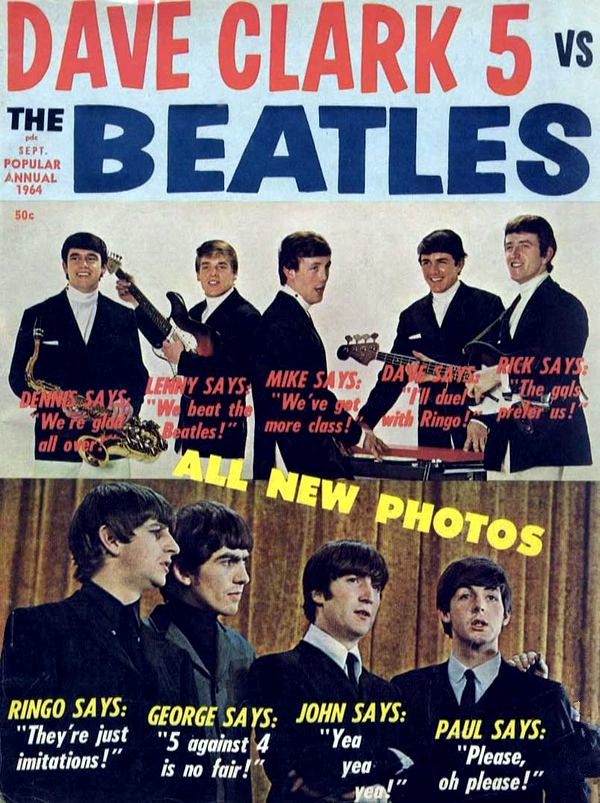 Almost forgotten now, the Dave Clark Five were at one time considered to be the band that would dethrone the Beatles as the Baby Boomers’ favorite. How could that be?
Almost forgotten now, the Dave Clark Five were at one time considered to be the band that would dethrone the Beatles as the Baby Boomers’ favorite. How could that be?
Before we answer that question, it’s good to get a little background on the band. They hailed from the Tottenham section of London. Dave Clark, a drummer, and guitarist Rick Huxley started in 1958 as part of a back-up band for singer Stan Saxon. The lads wisely decided to quit Saxon and strike out on their own. Huxley moved over to the bass guitar and they eventually added Lenny Davidson on lead guitar, Dennis Payton on saxophone and Mike Smith on keyboards and main vocals. By 1962, they were gigging around London as the Dave Clark Five. Clark also functioned as the band’s manager (saving the boys an additional 15% of their earnings).
When the Beatles went global in 1964, the DC5 was not far behind. The band got a publicity boost by becoming the first group to break the Fab Four’s stranglehold on the #1 position in the British charts when “Glad All Over” finally ousted “I Want to Hold Your Hand” from the top spot. “Glad All Over” was actually the band’s 6th single and only their second to even chart.
American radio stations hungry for more British product latched onto “Glad All Over” and sent it up the American charts. Here, however, Dave & the boys were held out of the top spot by the continuing popularity of John, Paul, George and Ringo.
 Ed Sullivan made the DC5 the next British rockers to earn a spot on his Sunday TV show, appearing for two weeks in March of 1964 (following the Beatles’ three weeks in February). They went on to appear 10 more times, more than any other band from the British Invasion, including the Beatles.
Ed Sullivan made the DC5 the next British rockers to earn a spot on his Sunday TV show, appearing for two weeks in March of 1964 (following the Beatles’ three weeks in February). They went on to appear 10 more times, more than any other band from the British Invasion, including the Beatles.
Between 1964 and 1967, the Dave Clark Five placed 14 songs in the American Top 20, including “Bits and Pieces,” “Can’t You See That She’s Mine,” “Over and Over” and “You’ve Got What It Takes.” They starred in their own movie, a Hard Day’s Night clone called Catch Us if You Can in the UK and Having a Wild Weekend in the States.
Yet, as the decade moved on, the Dave Clark Five failed to move with it. As rock grew more complex, the simpler sounds of the DC5 fell out of favor. By 1970, the group disbanded.
Dave Clark, however, was not finished. He was an acute businessman. He became a successful entrepreneur in the show business world, buying up the rights to the long-running British TV rock showcase, Ready, Steady, Go. He also wrote and produced a stage musical named Time that featured Laurence Olivier’s final acting performance. He continued to tour with various musicians as Dave Clark & Friends.
He also owned the rights to the entire musical catalog of his old band, There, he may not have been as wise because he kept the group’s music totally out of print between 1978 and 1993. Starting in ’93, Clark made a greatest hits compilation available, but it wasn’t until 2019 that virtually the entire catalog of the Dave Clark Five’s music was once again on sale to the general public.
 The group was finally enshrined in the Rock & Roll Hall of Fame in 2008. Denny Payton had passed away by that time. Mike Smith planned on attending the induction ceremony, but sadly, he also passed away just 11 days before the event.
The group was finally enshrined in the Rock & Roll Hall of Fame in 2008. Denny Payton had passed away by that time. Mike Smith planned on attending the induction ceremony, but sadly, he also passed away just 11 days before the event.
Now, why in the world did people think that the Dave Clark Five would replace the Beatles? Because most of the media at that time was still in the hands of adults who had come of age in the pre-rock era. They presumed that all rock acts were just flashes in the pan, no better than yo-yos or bellbottoms, and the audience of star-struck teenage girls would quickly move from crush to crush in a fickle manner. The notion that the music really mattered never occurred to them.
 While the Dave Clark Five certainly looked good, Mike Smith being a particular heartthrob, the band didn’t have the brash stand-out personalities of their Liverpool cousins. Also, the Beatles started trends, from their haircuts to the movies to sitars and beyond. The DC5 were a competent combo of rockers, but innovators they were not. Clark, the group’s chief songwriter, didn’t have the writing talent or range that Lennon, McCartney and Harrison would develop as we moved through our Wonder Years.
While the Dave Clark Five certainly looked good, Mike Smith being a particular heartthrob, the band didn’t have the brash stand-out personalities of their Liverpool cousins. Also, the Beatles started trends, from their haircuts to the movies to sitars and beyond. The DC5 were a competent combo of rockers, but innovators they were not. Clark, the group’s chief songwriter, didn’t have the writing talent or range that Lennon, McCartney and Harrison would develop as we moved through our Wonder Years.
Nevertheless, they deserve their spot in the Hall of Fame, and listening to the best of the tunes they cranked out in the mid-sixties can still make us feel “Glad All Over.”


